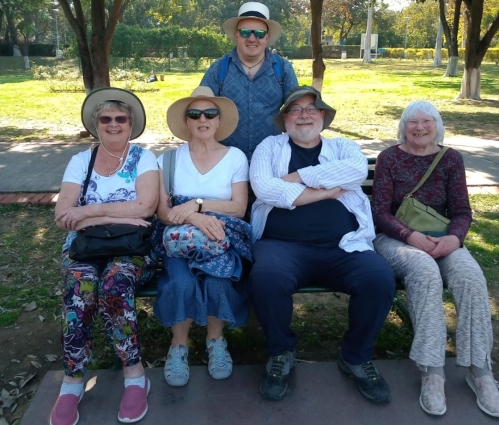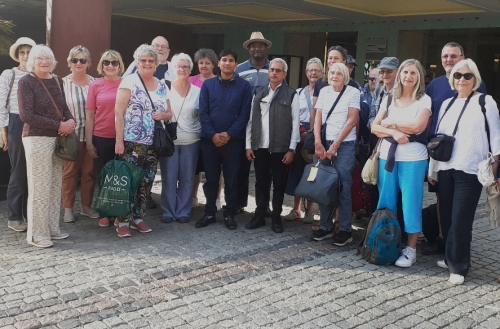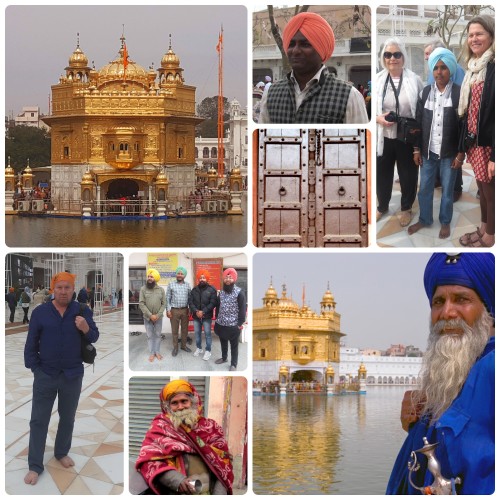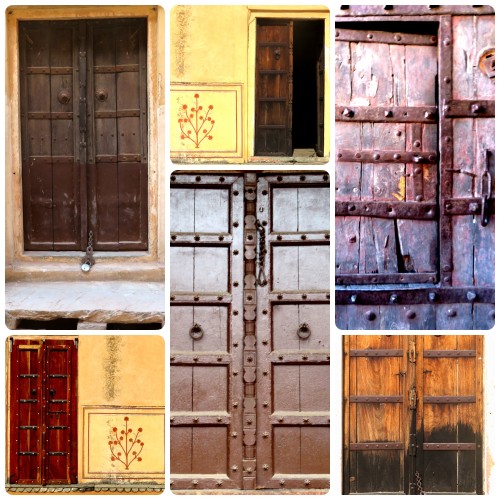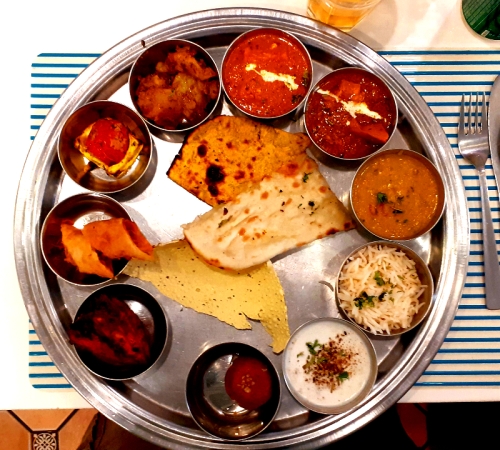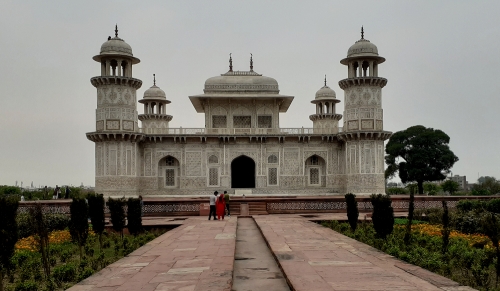Four more to go to complete my Top Ten and I suppose that I really have to include the tiger…
At Ranthambore we had a day of Safari looking for a Bengal Tiger. After an early start four rather tedious hours in the morning yielded nothing at all except the sort of wildlife that we can see at home in Lincolnshire (except the crocodile of course) so after lunch and the threat of another four hours in the afternoon being bounced about on hard, unyielding wooden seats Kim decided against it and opted instead for a much more comfortable afternoon poolside and a spa treatment.
Out in the jungle another four hours passed and still no big cat except that in the final moments of the jeep trial there was some excitement and there a hundred yards away was a female tiger. Just sitting there digesting her lunch of raw gazelle and turning her back and ignoring the tourists.
Eight hours of uncomfortable searching and eight minutes of a tiger spotting. Kim wasn’t too disappointed, I offered to take her to the Doncaster Wildlife Park close to where we live when we got home to see a tiger. It is only £25 admission (senior rate) and you are guaranteed to see one. Two months on and she is yet to take me up on this fabulous offer.
Fellow traveller Ruth had this to say. “I really enjoyed the two safaris. I think it was the fresh air and bouncing about in the back of the truck with the naughty kids was great fun”. Naughty kids? You know who you are.
I have to say that if I hadn’t seen a tiger then the Safari would not have made the top ten at all and would be settled down in the bottom three. The bottom three up later..
Firmly in the Top ten is the Tour Group, it is important to have a group pf people who get on well together and enhance the experience and we certainly had that.
Fellow traveller Jennifer put it like this…
“I have always wanted to see India… So we booked… The other passengers on the trip were amazing…. I now call them friends. Everything was as I imagined but better. Thank you everyone for giving Ian and I a holiday of a lifetime.”
Tour Manager Rahi said… “We definitely made some friendships along the way which will last a long time. And we now arrive to the final moments of the journey I would like to let you know that it has been a nice group to work with with loads of laughs and experiences”
Next up and I am going back to day one and a Walking tour of Old Delhi.
Here was the real culture shock that I was expecting. Poverty and destitution, despair and malnutrition and deformity are all on public view. In UK we cross the street to avoid a beggar or complain about street homeless sleeping in shop doorways but here it is all part of street life.
All human existence is on show here, a timeline of evolution and development running through the streets and all in vivid contrast. Grubby corners, dirty beggars and then vibrant streets and coloured saris. Different religions, trade and commerce, wealth and poverty, success and failure, suffering, destitution and poverty, improvisation, happiness and joy. The full spectrum here on open street display.
What an introduction to India this was, a slap in the face, a punch in the gut, this might have been better at the end rather than the beginning of the experience but never mind, all that was required was to walk into a rainbow or help mix colours on an artists palette. After one day I was in love with India.
So that leaves just one more spot in my Top Ten and I give this to Tour Manager Rahi. From the moment we arrived at Delhi International Airport everything was seamlessly organised and brilliantly coordinated.
It seems important to me to have a local tour manager (Rahi lived a long way from Delhi in the city of Udaipur but what is a few hundred miles when we have travelled five thousand) a guide who understands the culture, can tell the history and answer most every question thrown at him. Calm, collected, patient and seemingly unflappable. Quite simply the perfect Tour Manager.
And a fabulous sense of humour. At the end he asked “I hope you enjoyed my company, my explanations and my commentaries”. How funny, of course we did, he was the main man in making the holiday a success.
I should also mention here local expert tour guides, Jaswinder Singh in Amritsar and Sanjay Jadhar in Shimla who both provided a wonderful day out. And also coach driver D,P Sharma and his friendly assistant Chandu.
So, that was my Top Ten highlights of the holiday/tour, not everyone might agree with my selection.
I mentioned a bottom three and these are they – Carpet shopping in Jaipur, the Pakistan border crossing pantomime and the Rose garden with no roses in Chandigarh.
Except for the English Roses of course…






























